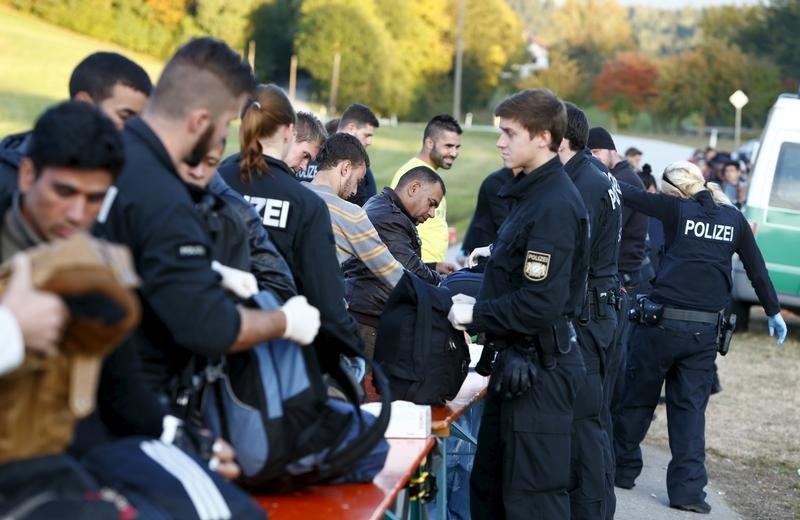STUTTGART/BERLIN (Reuters) - Interior Minister Thomas de Maiziere called on Monday for the government to restrict the number of refugees coming to Germany, adding pressure on Chancellor Angela Merkel who has refused to support an upper limit.
The conservative leader's popularity has slumped to its lowest level in nearly four years, reflecting growing public concern in one of Europe's richest country over the influx of hundreds of thousands of refugees.
The unprecedented influx is testing the limits of Germany's abilities and willingness to grant shelter as federal states struggle to cope with record inflows of people fleeing from war and poverty in the Middle East, Asia and Africa.
"That's why we have to limit the numbers and find the right balance," De Maiziere said during a debate with citizens in the southwestern German city of Stuttgart, without giving a figure.
"Our capabilities are limited," he said, adding that a ceiling on numbers would help make the refugee crisis more an opportunity and less a challenge.
De Maiziere reiterated his proposal that European countries should agree a joint ceiling and a quota on how to share the burden among all EU member states.
"But when this quota is exhausted, we'll keep on rescuing lives," he added, alluding to the likelihood that more asylum seekers will undertake perilous sea journeys to Europe regardless of any formal EU limits.
Merkel's Bavarian allies have accused her of unwittingly encouraging more refugees to come to Germany by stating publicly there was no upper limit to the number that would be accepted.
Conservative politicians have urged Merkel to come out in favour of a maximum number. In addition, Finance Minister Wolfgang Schaeuble has said Europe needs to restrict the number of people coming to the continent.
But Merkel so far has rejected to give way, saying in a radio interview aired on Sunday that Germany must tackle the crisis head-on rather than trying to get rid of the problem.
German authorities meanwhile expect up to 1.5 million refugees to come to the country this year, up from a previous estimate of 800,000 to 1 million, the Bild daily reported.

An Interior Ministry spokesman neither confirmed nor denied the report on Monday. He added, however, that the number of arrivals of the last weeks could not be extrapolated to obtain a annual total, casting some doubt on the figure reported by Bild.